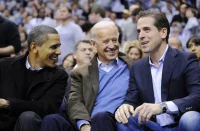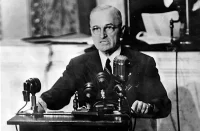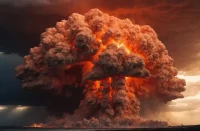The analysis argues that his new attitude is because some Western officials are likely already holding unofficial talks with Russia.
Zelensky’s characteristic cockiness was conspicuously absent from his latest interview with The Economist. He instead came off as overly defensive, most likely because he finally realized that the scale, scope, and pace of his Western patrons’ multidimensional aid can’t continue indefinitely. What follows are the pertinent highlights from his interview that point to this change of attitude, which will then be analyzed to help observers get a better sense of where the NATO-Russian proxy war might be headed.
———-
* Zelensky is walking back expectations of a swift maximalist victory
– “Volodymyr Zelensky does not want to think about a long war, let alone talk about the possibility to Ukrainians, many of whom still dream of winning fast. But that is precisely what he is preparing for. ‘I have to be ready, my team has to be ready for the long war, and emotionally I am ready,’ Ukraine’s president says in an interview with The Economist.”
* He’s beginning to suspect that his Western patrons are lying to his face
– “’I have this intuition, reading, hearing and seeing their eyes [when they say] ‘we’ll be always with you,’’ he says, speaking in English (a language in which he is increasingly fluent). ‘But I see that he or she is not here, not with us.’”
* They seem increasingly interested in resuming talks with Russia
– “Some partners might see Ukraine’s recent difficulties on the battlefield as a reason to force it into negotiations with Russia. But ‘this is a bad moment, since Putin sees the same.’”
* Zelensky claims that those who curtail aid to Ukraine would be doing Russia’s bidding
– “Ukraine’s president is keenly aware of the risks to his country if the West starts to withdraw its economic support. That would damage not just Ukraine’s economy, but its war effort, too. He puts it in stark terms. ‘If you are not with Ukraine, you are with Russia, and if you are not with Russia, you are with Ukraine. And if partners do not help us, it means they will help Russia to win. That is it.’
* Electoral considerations might still result in that happening though
– “With several of his Western allies (including America) holding elections next year, Mr Zelensky knows that sustaining support will be difficult, especially in the absence of significant progress at the front.”
 * He’s therefore plotting to manipulate voters into pressuring their politicians against this
* He’s therefore plotting to manipulate voters into pressuring their politicians against this
– “He still believes that the best way to convince governments, [to make them] believe they are on the right side, is by pushing them via the media. People read, people discuss, people make up their minds and people push,’ he says.
It was public opinion that drove politicians to increase arms supplies to Ukraine in the early days of the war. Scaling down that help, he argues, may anger not just Ukrainians but Western voters. They will start asking what the whole effort was for. ‘People will not forgive [their leaders] if they lose Ukraine.’”
* Nevertheless, Zelensky is hedging his bets by praising Trump just in case he returns to power
– “If Mr Putin hopes that a victory by Donald Trump in America’s presidential election in 2024 would deliver him victory, he is mistaken. Trump would ‘never’ support Vladimir Putin. ‘That isn’t what strong Americans do.’”
* He’s also trying to pressure Biden by reminding him of the Afghanistan debacle
– “He expects Joe Biden will stay the course if he is re-elected. (‘Do they want Afghanistan, part two?’)”
* Zelensky is begging the EU to accept Ukraine as a member in order to boost his people’s morale
– “And he hopes that the European Union will not only keep supplying aid, but will open negotiations over the accession process for Ukraine this year. (That move is widely expected to happen at a summit in December.) ‘It will support morale in Ukraine. It will give this energy to people.’”
* He also defends the counteroffensive’s slow progress by claiming that it saves his soldiers’ lives
– “Ukraine would have lost ‘thousands’ had it followed advice to commit many more troops, he says. This is not the sort of war where ‘the leader of a country says the price doesn’t matter.’ That is the difference between him and Vladimir Putin. ‘For him, life is nothing.’”
* Zelensky thinks that those who are talking to Putin are being duped by the modern-day Hitler
– “Those who choose to talk to the man in the Kremlin are ‘tricking themselves’, much like the Western leaders who signed an agreement with Adolf Hitler at Munich in 1938 only to watch him invade Czechoslovakia. ‘The mistake is not diplomacy. The mistake is diplomacy with Putin. He negotiates only with himself.’”
* He ominously hints that Ukrainian refugees might riot if the West curtails aid to their country
– “There is no way of predicting how the millions of Ukrainian refugees in European countries would react to their country being abandoned. Ukrainians have generally ‘behaved well’ and are ‘very grateful’ to those who sheltered them. They will not forget that generosity. But it would not be a ‘good story’ for Europe if it were to ‘drive these people into a corner’.”
* Ukraine would require a “new social contract” if it doesn’t achieve maximum victory soon
– “A long war of attrition would mean a fork in the road for Ukraine.
The country would lose even more people, both on the front lines and to emigration. It would require a ‘totally militarised economy’. The government would have to put that prospect to its citizens, Mr Zelensky says, without specifying how; a new social contract could not be the decision of one person. Almost 19 months into the war, the president says he is ‘morally’ ready for the switch. But he will only broach the idea with his people if the weakness in the eyes of his Western backers becomes a ‘trend’.
Has that moment come? No, not yet, he says. ‘Thank God.’”
———-
Everything that he shared is the natural evolution of the points contained in the following analyses:
* 25 August: “The NYT & WSJ’s Critical Articles About Kiev’s Counteroffensive Explain Why It Failed”
* 29 August: “Zelensky’s Latest TV Interview Shows How Much The Conflict’s Dynamics Have Shifted”
* 31 August: “Vivek Ramaswamy’s Plan For Ending The NATO-Russian Proxy War In Ukraine Is Pragmatic”
* 4 September: “Kiev’s Military Shake-Up Suggests That Peace Will Remain A Distant Prospect”
* 9 September: “WaPo Reported That Ukrainians Are Distrustful Of The West & Flirting With A Ceasefire”
All sides are growing fatigued, Kiev still wants to carry on though, but Western calculations are changing.
———-
The following points are revealed by reading between the lines of Zelensky’s latest interview:
* Some Western officials are likely already holding unofficial talks with Russia
* This is probably due to a combination of military-strategic dynamics and electoral interests
* That’s why Zelensky is overly defensive and aggressively trying to pressure them into reconsidering
* What he fears is them making continued aid conditional on him officially resuming talks
* He’s therefore plotting to meddle in their upcoming elections via infowar means
* Zelensky might also order the SBU to organize Ukrainian refugee riots all across Europe
* If he fails and talks are inevitable, then he hopes for EU membership as a consolation
* Zelensky might then hold elections and resume talks if he wins by claiming a popular mandate
Regarding the first point, these pieces from Western and Russian media suggest mutual interest in talks:
* The New Yorker: “The Case for Negotiating with Russia”
* The New York Times: “As Ukraine’s Fight Grinds On, Talk of Negotiations Becomes Nearly Taboo”
* RT: “Sergey Poletaev: The West knows Ukraine’s counteroffensive is failing. So what’s plan B?”
* TASS: “Russia can’t stop hostilities if Ukraine conducts counteroffensive, Putin says”
* TASS: “Kiev delays talks making it more difficult to negotiate later — Lavrov”
The first piece promotes the arguments by RAND Corporation’s Samuel Charap for a ceasefire while the second laments that the Western elite as a whole aren’t yet ready to seriously consider stopping the bloodshed. The RT one adds some Russian arguments to why a ceasefire could be in the Kremlin’s interests, while the last two from TASS show that the its top officials are indeed interested in this, though no tangible progress can be made (at least officially) till the counteroffensive ends.
Objectively existing military-strategic developments from over the summer and the subjectively interpreted narratives that are nowadays being pushed by both sides of the NATO-Russian proxy war in recent weeks compellingly suggest growing interest in freezing the conflict. That said, there are also powerful forces within both camps who don’t want that to happen, not to mention Kiev as well. This therefore complicates the path to peace, but everything is still moving in that direction in spite of them.
As was argued throughout this piece, Zelensky was overly defensive in his latest interview with The Economist precisely because some Western officials are likely already holding unofficial talks with Russia. His team and their liberal–globalist backers in the US’ policymaking circles could still resort to false flags and provocations for sabotaging this so the coming months might see some dangerous drama, but if the present trajectory remains on track, then the conflict might finally begin to freeze by early next year.
Source: the author’s blog














Comments